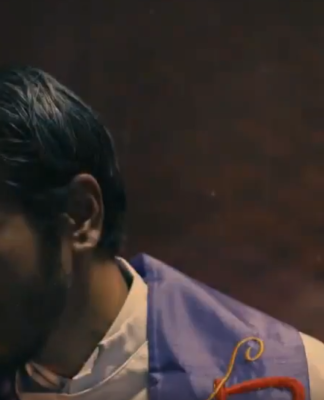BEFORE each Good Friday, Victor Caparas, 41 years old, goes to church to pray, then, he goes home and rests for the coming endeavor: Four stainless steel nails will have pierced through his hands and feet, like what he has endured every Good Friday for the past 16 years.
There are times when his heart pounds and he becomes nervous, he said.
“I think about the pain when the nails are hammered, much more when they are removed,” he said. But he will endure all the pain only to fulfill his panata.
His panata or religious vow of sacrifice started in 1991 when he found no other solution to his long-time “friend” and foe—prohibited drugs.
Victor’s problem before was how to get money to support his vice. There came a time when during the height of his addiction, he stole and sold his family’s appliances to buy shabu (metamphetamine). Even his family could not help him, so his worried mother, Christina, asked the Mayor’s office to have his son kept away.
After five years of illegal drug use, he was crucified—not as a punishment, but as a completion of a religious sacrifice.
Back home in San Pedro Cutud, San Fernando City, Pampanga, a barrio famous for crucifixion rites, Victor dreamed of a very bright light and he interpreted it as God’s sign of change. Victor was eventually released by the Mayor after some time.
“I realized I should have my own ‘panata’, hence my first crucifixion in 1991,” he said. Since then, he gradually lost his craving for drugs; he declined every offer of his friends and told them he will never take illegal drugs even if they give money for him to buy some.
He also continues his vow for his father, who has a heart ailment, his diabetic mother, and his asthmatic younger sister. Slowly, they are getting better, he told the Varsitarian in his dialect.
Seventh among nine children, Victor never got the chance to go to school because of poverty. “I can’t even write my name,” he said. Whenever he and the other men to be crucified are made to sign a waiver, he becomes the center of laughter. They tell him to scrawl anything on top of the blank with a pen and so he does. “Maybe that scribble is my signature,” Victor said.
Because of his lack of education, he is unable to find a decent-paying job, he said. For a living, he works as a helper in a neighbor’s tinapa (smoked fish) business. He receives a kilo or two of fish which he and his family of two children consume for a day. And as if God was truly testing him, his wife, Chona, died of asthma more than a month ago.
His left hand and right foot had also suffered from an accident seven years ago, causing them to weaken. He had been advised by doctors to undergo therapy but the expensive fee had always hindered him.
However, his state did not push him to grab the temptation of earning extra money through his panata, a practice which has tainted the tradition in recent years.
Someone offered him P6,000 and a sack of rice for one crucifixion but he begged off. “What’s the sense of fulfilling your ‘panata’ if you accept payment for it,” he said. “Those who do are not blessed by the Lord.”
He recalled his friend who once accepted payment in exchange of crucifixion. One of the nails hit the man’s bone and he was no longer able to do it again. “When the residents do it here in Cutud, it is genuine. If they go outside, it is usually fake or paid,” he said.
“I think, if the intention is right, there is nothing wrong with this crucifixion,” said Rev. Fr Jaime Alamillo. If it is one’s “panata” then, one should fulfill it, he said. For Victor, he sees himself being nailed on the cross as long as his body will allow him. As for his mother, she said, she is no longer worried about her son: “God will not forsake him.” J. T. B. Mendoza














